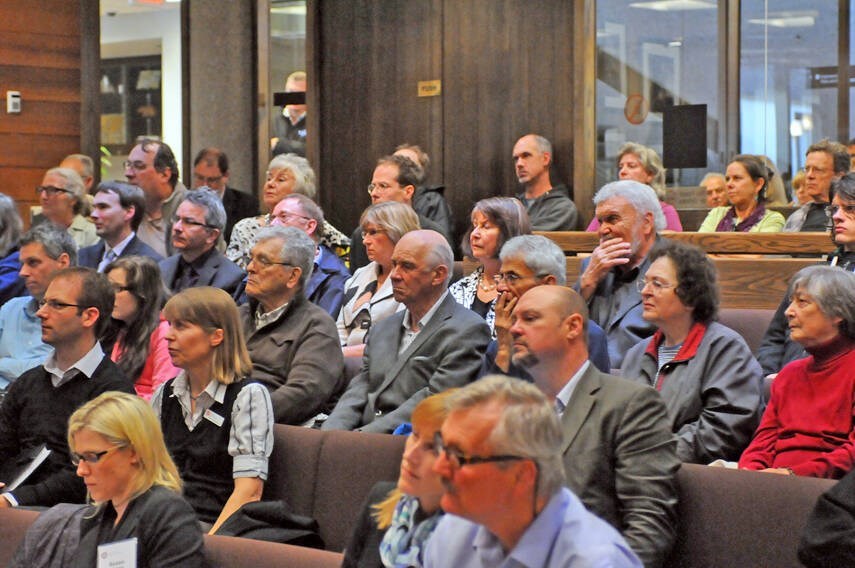If you tried to read this column aloud during a North Shore council meeting, likely you’d be stopped partway through. Not because the presentation is offensive or putting people to sleep – although I suppose that’s possible – but because your time would have expired.
It’s crazy. Steadily and sadly over the years, the allocated time has shrunk for someone to present to council on an issue, particularly one that isn’t part of the day’s agenda. In the name of greater meeting efficiency, we’ve sacrificed greater public participation.
This should worry us. Municipal politics already suffer inadequate attention.
What not long ago were five and sometimes 10 minutes to speak to an issue or a proposal of one’s choosing has been reduced in recent years in the Districts of North and West Vancouver to three minutes. In the City of North Vancouver, it’s a miserly two.
A challenge: Try to present a perspective on an issue, with some substance, in two or three minutes. Fulfill the basics: Get the listener’s attention, state your line of reasoning, support it with evidence, address the counterarguments, and close with a memorable sentence or two.
Professionals can occasionally do it, newbies rarely can. And it often shows when time expires before their thoughts are completed.
While councillors have no restrictions on how verbose or performative or meandering they can be, members of the public are on the clock. Over the years, I’ve seen councillors on their phones, reading documents, passing notes – far removed from listening to those who have given over their evenings to say something that means something to them.
The province is complicit. Two years ago, it passed Bill 16 to eliminate mandatory public hearings on building proposals if they conform with zoning specifications in a community plan. The aim was to expedite projects, but an unintended consequence has been to diminish community discussion on neighbourhood changes.
In West Vancouver, the public can speak for three minutes on most anything throughout the meeting. If it’s not on the agenda, input is scheduled at the end of a meeting. There are no limits on how many can present, but by placing speakers at the end of the meeting, it positions the exercise as a less meaningful addendum.
In the City of North Vancouver, council limits the number of two-minute speakers to five at the start of its meetings under its procedure bylaw. And on its website in bold-face type is a bit of a warning: “Speakers may only speak on the same matter once in a three-month period.” It also reminds presenters to address the mayor as “your worship” or “mayor.” Quite encouraging, that.
In the District of North Vancouver, 30 minutes are allotted at the start of meetings for individual presentations “on any item of interest” – again, for only three minutes each. You do get a reserved seat in the chamber, though.
For something a bit better, head over the bridges. Five minutes are provided in Burnaby, and a more generous 10 minutes is provided in Surrey to present on a matter of “broad interest,” to “initiate interest and guidance to a solution” or to “bring council up to date on a project, idea or concept.”
The American founding father, Alexander Hamilton, coined the saying that “at times there can be too much democracy.” He worried about issues being swayed by passion instead of solved by reasoned deliberation.
Sure, citizens can filibuster a meeting into numbing inertia, meetings can become marathons, and the repetition of arguments can be enervating. And yes, occasionally some intriguing conspiracies surface.
But the pendulum has swung too far and needs to swing back a bit. There aren’t any studies I can find that conclude our democracy benefits from the shorter citizen presentations. It’s merely an expedience for council’s convenience and a disincentive for the public to raise and discuss issues.
Ideally, council chambers should be lively places of dialogue, not simply stages for talkative politicians to be witnessed by quieted audiences. Letting more people talk a little longer – heaven forbid, to even go back and forth with an elected official – would be a small price to pay.
Kirk LaPointe is a West Vancouver columnist with an extensive background in journalism. His column on North Shore issues runs biweekly. [email protected]



